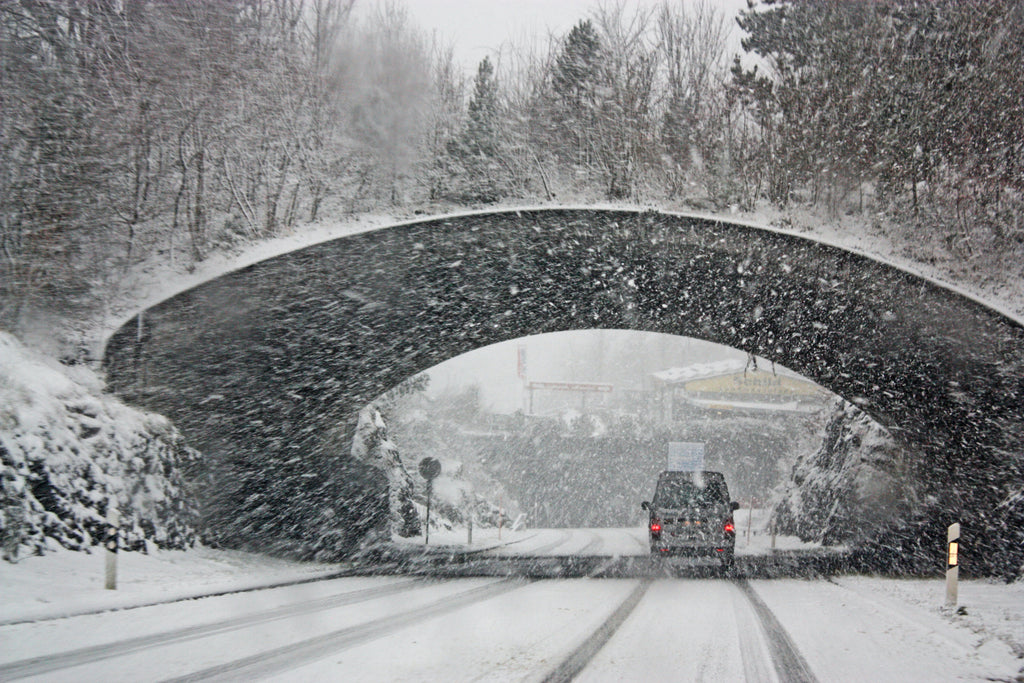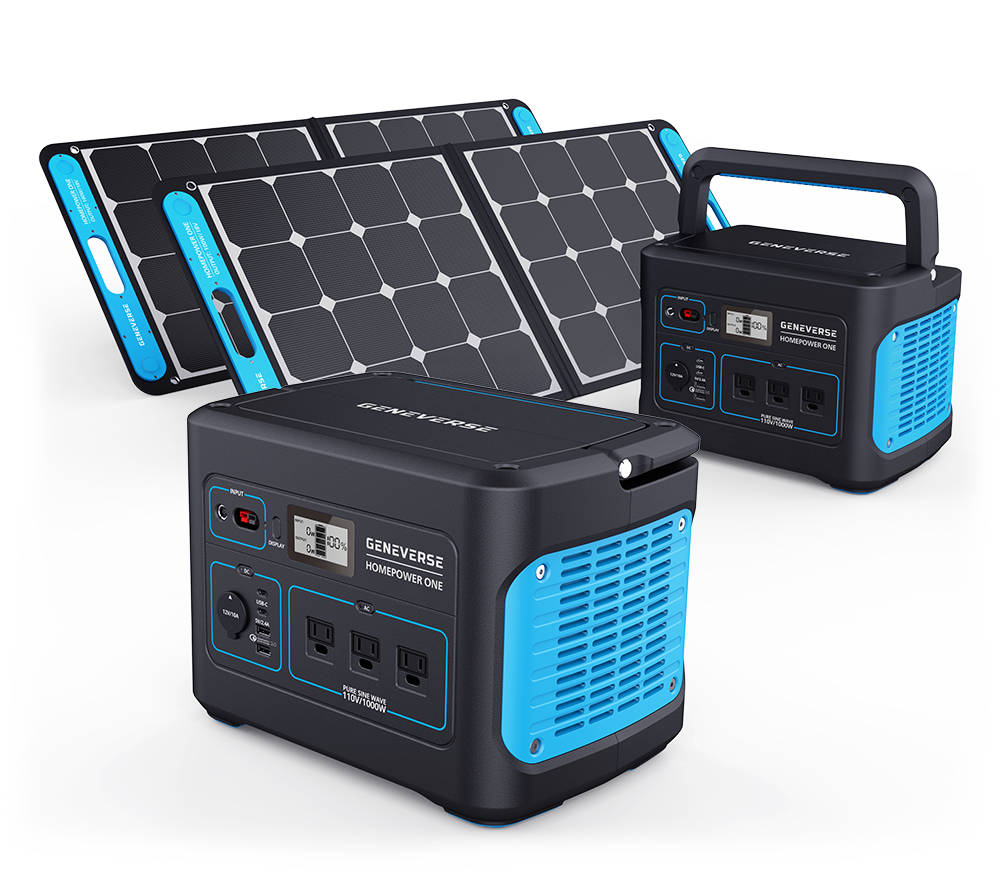Everyone loves a pretty snow fall now and then, but when pretty flurries turn into a dangerous winter storm, it can become an emergency sooner than you can take action. Winter storms increase the risk of car accidents, hypothermia, frostbite, and other health struggles. Winter storms are commonly referred to as blizzards and can include extreme cold, freezing rain, snow, ice, and high winds. Some winter storms can last from a few hours to a few days and knock out power for just as long, which will result in losing home heating.

According to a research study reported by USAToday, winter storms are becoming more and more common in the United States. Since 1995, Americans have experienced an average of 19 blizzards a year, compared to previous reporting of only nine a year. As is the case with all weather events, there are ways you can prepare yourself for a potential winter weather emergency. Here are a few tips to get you started.
1. Create an Emergency Supply Kit
It is best to always have a basic emergency supply kit fully stocked year round. Stock your kit with plenty of water, non-perishable foods that don’t require a long cooking process, and utensils. Be sure to have first-aid supplies, like bandages and anti-bacterial creams, in an easy-to-find location to prevent any panic in case you find yourself needing a patch-up. It is also very important in a black-out to have enough batteries on hand, in a wide variety of sizes. Assess your home’s needs ahead of time to know which batteries you will need the most of. And definitely don’t forget the flashlights! Keep them in easily-accessible locations around your house, like in a nightstand, end table, and kitchen cabinet. In the winter, be sure to have plenty of blankets and warm sweaters on hand, as well.

2. Keep A Car Kit
It’s great to have emergency supplies well-stocked in your house, but in the event that a winter storm hits while you’re on the road, you need to also have your vehicle fully stocked. It is important to note that in the event of a winter storm warning, it is always best to stay off the roads as much as possible. When traveling, always be sure you have a full tank of gas. Keep jumper cables, an ice scraper, sand, and a flashlight in your car along with warm clothes, blankets, bottled water, and non-perishable snacks. If you are traveling to an area you are unfamiliar with, bring a map in case you lose access to your phone GPS.
3. Prepare Your Home to Keep Out the Cold
Ensure that your home is properly outfitted for winter weather conditions by caulking and weather-stripping all doors and windows. Add insulation in the walls, attics, and around water lines that are in exterior walls to prevent pipes from freezing. To further keep out the cold during a storm, install storm or thermal-pane windows or cover them with plastic from the inside. Ahead of time, repair any leaks in your roof and clear dead tree branches that could fall on your house or car.
4. Sign Up For Emergency Alerts
Sign up for your community’s emergency alert system and pay attention to any warnings that come in from surrounding areas. Storms may move faster than expected, so you can benefit from any information coming from neighboring communities. You can also sign up for alerts from areas that other family members live in, like elderly grandparents, to help them stay up-to-date and prepared.
5. Understand Winter-Weather Hazards
Aside from dangers to your home or property, winter weather can cause frostbite and hypothermia. Knowing and understanding the symptoms and how to treat them will help you remain calm in the face of an emergency situation.

Frostbite causes the loss of feeling and color to your face, fingers, and toes. If you feel numbness or your skin turns gray or waxy, immediately move to a warmer room or soak in a warm tub. Do not use electrical heating pads or blankets to feel warmer.
Hypothermia causes your body temperature to significantly drop - temperatures below 95 degrees are dangerous. If you experience shivering, exhaustion, confusion, memory loss, or slurred speech, immediately move to a warmer room and try to warm yourself starting with the chest, neck, and head. Stay dry and wrap your full body in warm blankets.
6. Prepare to Lose Power
With severe weather, it is not uncommon to lose power. It is common, however, to not know when the power will come back on. In 2017 alone, 36.7 million Americans were affected by 3526 power outages. To feel the most at ease during a winter storm and all weather events, purchase a backup battery power generator. Geneverse (formerly Generark)’s HomePower ONE can power your devices and home appliances for up to seven days. With high-power outputs and wide-range compatibility, you can choose what devices are necessary for your family’s comfort, whether it be lights, the refrigerator, security system, or a cell phone charger.

7. Battery-Power Your Home
Even with Geneverse (formerly Generark)’s wide-range compatibility, there are some items in your home that you should ensure are battery-operated in the case of a power outage. Be sure that you have battery-powered smoke and carbon monoxide detectors throughout your home. Test them monthly and replace the batteries twice a year. Keeping a battery-powered radio is also useful to ensure you can keep up with breaking news without draining your phone battery.
Summary
With winter weather, what is thought to be picturesque snow flurries can unexpectedly turn into a blizzard. It is best to keep you home and car fully stocked with supplies for a potentially long-lasting storm, emergency, or power outage. Ahead of any storm warnings, update the window-stripping and insulation in your home. Sign up for emergency alerts so you will know when to keep off the roads and charge up your backup battery power generator. Understanding the warning signs and treatments for winter weather health hazards will help you keep calm and take action in an emergency.
For even more tips, check out our articles about preparing for poweroutages and creating an emergency supply kit.
About Geneverse: Geneverse (formerly Generark) is the most reliablesolar generator and source of emergency backup power for your home and community. From theHomePower backup battery power station providing portable access to electricity, to theSolarPowersolar panels as a source for recharging, never be disconnected from what matters most to you. Learn more about how Geneverse and its industry-leading 5-year limited warranty can bring protection and security to your family ongeneverse.com. Never face a power outage alone, and power your home with a solar generator from Geneverse.




Leave a comment (all fields required)